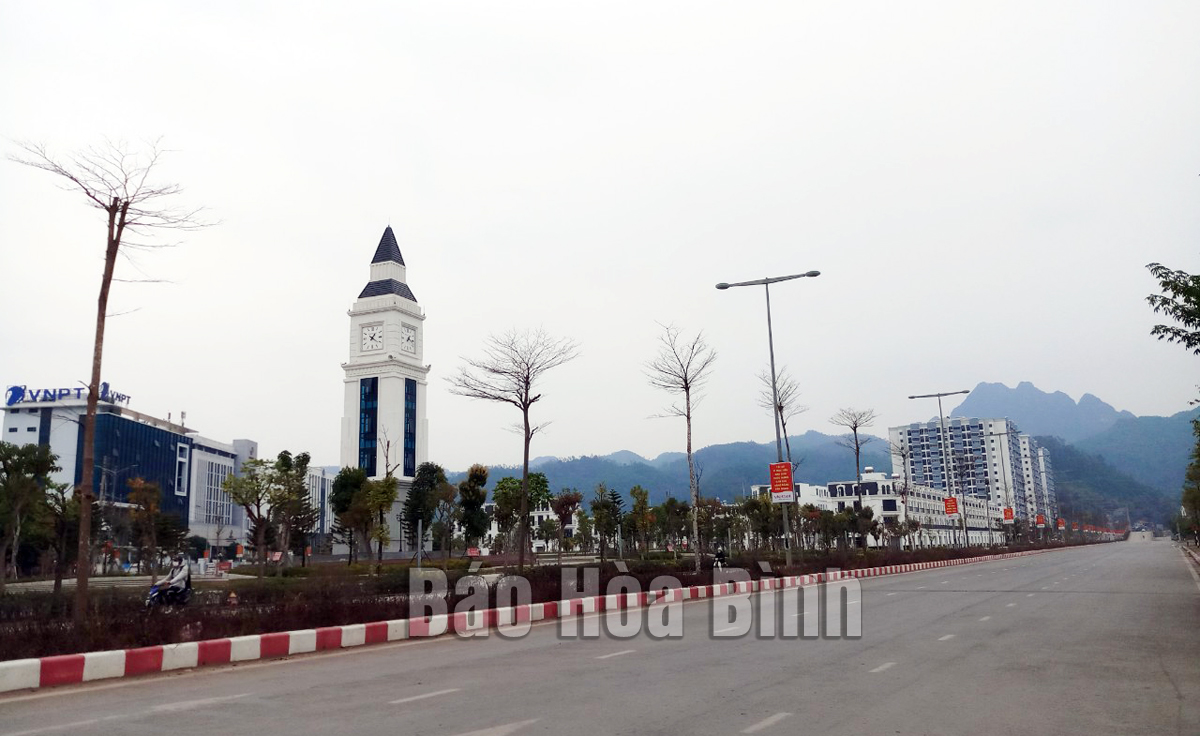
(HBO) - Hoa Binh – Hoa Binh provincial People’s Committee has approved the province’s urban development programme by 2025 with a vision towards 2030.

Over recent years, the province has
mobilised investment resources for urban development in Hoa Binh city.
According to the Resolution of the 17th provincial Party
Congress in the period of 2020 – 2025, the province aims to reach a
urbanisation rate of 38% by 2025 and 43.18% by 2030.
Implementing the resolution, the province targets to have
an appropriate, harmonious, and modern technical and social infrastructure in
urban areas, a good urban environment, and living quality, proper adaptation to
climate change, and advanced urban architecture.
To promote the role of the geo-strategic position of the
province in the overall development of the northern midlands mountains region
and the Hanoi capital region, Hoa Binh aims to become an urban region with
great economic cultural contributions to the country.
The province will focus on investing in the construction
of technical and social infrastructure and controlling the quality of the urban
environment. It targets a harmonious combination between conservation,
renovation, and new construction of green and ecological cities, enhancing the
climate change resilience in urban areas.
Under its newly-approved urban development programme, the
province targets to reach an urbanisation rate of about 39% - 46.16% by 2025
and about 43.19% - 50.57% by 2030.
From now to 2025, the province expects to have 13 urban
areas. By 2030, another three urban areas are expected.
It is estimated that the province needs 138.07 trillion
VND (5.81 billion USD) for urban construction, including about 83.82 trillion
VND for infrastructure connecting urban areas and about 54.25 trillion VND for
developing urban areas as well as those planned for new urban areas./.
The Standing Board of the Hoa Binh provincial Party Committee met on March 18 to review and guide major investment projects aimed at boosting local socio-economic development.
The air is thick with the hum of drills and the clatter of machinery as the Hoa Binh – Moc Chau expressway takes shape amid the rugged terrain. Welding sparks illuminate the faces of workers, and concrete mixers churn relentlessly, laying fresh pavement on the newly-carved road. The construction site buzzes with a palpable sense of urgency, particularly in Hoa Binh province where the expressway's future is being forged.
The northern province of Hoa Binh, with over 467,000 hectares of natural forest and more than 100,000 hectares of production forest, holds significant potential for carbon credit market development.
Replacing substandard houses with more sturdy ones by June 30 is the direction given by Nguyen Phi Long, alternate member of the Party Central Committee and Secretary of the Hoa Binh provincial Party Committee, at a meeting held in early March by the provincial Steering Committee for the programme to eliminate temporary and dilapidated houses for the needy.
Recognising digital transformation as an inevitable trend, authorities and agencies in Hoa Binh have made great efforts in the work by focusing on three core pillars - digital government, digital society, and digital economy, resulting in enhanced competitiveness, improved investment climate, and ensured economic and social welfare.
In recent years, Da Bac district has improved administrative reform with a one-stop shop mechanism, streamlined inter-agency procedures, and a shift to digital platforms. These efforts have enhanced public service efficiency and contributed to local socio-economic development.



